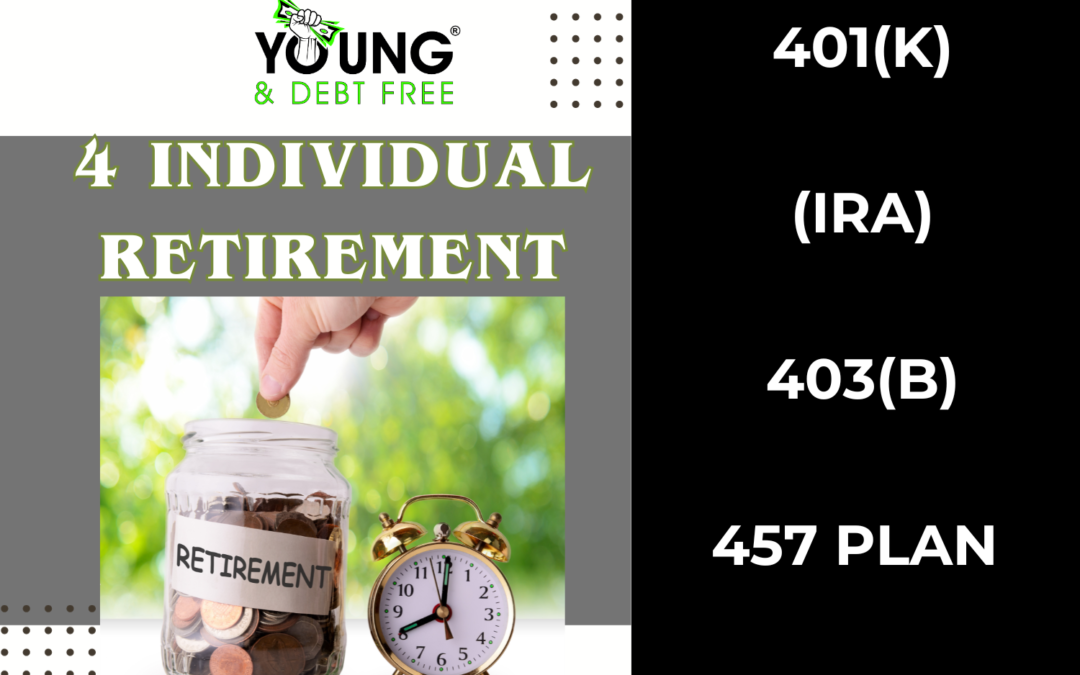There are several types of retirement accounts available in the United States, each with its own unique tax advantages and eligibility requirements. Here are examples of four different types of retirement accounts you can consider investing in:
- 401(k) Plan: A 401(k) plan is an employer-sponsored retirement account that allows employees to contribute a portion of their salary to the account on a pre-tax basis. Some employers also match a portion of the employee’s contributions. The contributions grow tax-deferred until withdrawal during retirement. There are traditional 401(k) plans and Roth 401(k) plans, with the latter taxed at the time of contribution but offering tax-free withdrawals in retirement.
- Individual Retirement Account (IRA): An Individual Retirement Account (IRA) is a personal retirement account that individuals can set up on their own. There are two main types of IRAs: Traditional IRA and Roth IRA.
- Traditional IRA: Contributions to a traditional IRA are often tax-deductible, and the earnings grow tax-deferred until withdrawal during retirement.
- Roth IRA: Contributions to a Roth IRA are made after taxes, but qualified withdrawals, including earnings, are tax-free. Roth IRAs also offer more flexibility on withdrawals before retirement age.
- 403(b) Plan: A 403(b) plan is a retirement account similar to a 401(k) but is offered by public schools, non-profit organizations, and certain other tax-exempt organizations. It allows employees to contribute a portion of their salary on a pre-tax basis, and the contributions grow tax-deferred until withdrawal in retirement.
- 457 Plan: A 457 plan is a retirement account available to employees of state and local governments and certain non-profit organizations. Like 401(k) and 403(b) plans, contributions to a 457 plan are made on a pre-tax basis, and the earnings grow tax-deferred until withdrawal during retirement. One unique feature of 457 plans is that they allow employees to make additional catch-up contributions as they approach retirement age.
It’s essential to consult with a financial advisor or tax professional to determine which retirement account(s) best suit your financial goals and circumstances. Different countries have different retirement account options, so it’s also important to consider the specific options available in your region.

